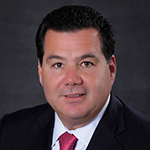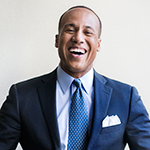To highway drivers, the iconic golden scroll on the back of J.B. Hunt’s white trucks may give the impression of a singular company, but after more than 20 years with one of the country’s largest shipping enterprises, Mark Greenway knows how delicate the employee structure is. He discusses the challenges and best practices for engaging a workforce that operates almost exclusively on the road.
How does the structure of a transport company like J.B. Hunt, with some independent contractors and a large remote workforce, affect the expectations of HR?
Serving the employees of J.B. Hunt is almost like working with two different companies. On the corporate side, I’m working in our headquarters and it looks just like any other company. People work 8 a.m. to 5 p.m., and I handle standard HR issues. Our other workforce, you almost never see; some of our drivers are home every night, while others are on the road for weeks at a time. It’s an extremely aggressive recruiting market for drivers, and we’re responding to employee issues involving vehicular accidents. That structure can create an us-versus-them dynamic, so I focus on supporting our people in the field, increasing transparency for our remote workforce, and teaching our managers how to work with that portion of the workforce.
Being a veteran of the company, how have you seen it change in your tenure with respect to HR, and how does that perspective help you serve your employees?
When I came to J.B. Hunt, I was a manager trainee, so I became familiar with the challenges of that role and where we were doing things well and where we needed to improve. As I advanced to head of HR, I saw that our technology and logistics were leading edge, but our people management was lagging. We used to take pride in being one of the first companies to go paperless, and one product of that was driver training. We would mail out a cassette, a two-hour tape called “Super Driver,” with company news, safety tips, and training sprinkled with entertainment. We were trying to communicate virtually with a remote workforce, and we found it wasn’t completely effective. To solve this, I wasn’t interested in employing some flavor-of-the-month solution, but if we could teach our managers sustainable practices like the “Seven Habits of Highly Effective People,” I thought we could create a common framework for helping our managers do their jobs more effectively.
How do you engage a remote workforce?
We try to reflect the values that the company was founded on. J.B. Hunt was a truck driver—your classic, salt-of-the-Earth, southern Midwesterner with regional morals and values. From day one, he treated every driver with integrity and as part of the family. He and Mrs. Hunt would treat drivers to a steak dinner when they came through town. Drivers are the key part of our business, and we want to take care of them. It starts with good managers and being transparent. We’ve made pay sheets, benefit information, and training available online for drivers, and if they need to speak with someone in the office, it’s not uncommon to hear an executive vice president on the phone with one of them.
J.B. Hunt is all about supply chain optimization, and it seems that carries into HR’s commitment to efficiency. How do you balance efficiency with quality?
It’s all about ROI. I was talking about going into HR with someone recently. They didn’t really like numbers and finance, so they said they’d go into HR, and I laughed to myself. At the end of the day we’re all business people. My side happens to be about taking care of people. Our people expense (payroll, benefits, and workman’s compensation) is one of the largest line items on our financial statement—even larger than our capital expenditures budget. We spend more on people than anything else as a company, so you better know your numbers. I ask myself and my managers what we’re doing to increase ROI in people—looking at people not just as a resource, but the most valuable thing we have. People will cost you more every year. If you’re not investing in them, developing them, and making them more productive, you’re not doing your job.
The company has been lauded for its workplace. What makes J.B. Hunt so appealing to employees, and how hands-on does a CHRO or SVP of HR need to be to develop that?
It starts with the personal belief that every human being has intrinsic value. I told my management team my goal for J.B. Hunt is that every employee leaves as a better person. We offer people economic opportunity, the chance to save for a retirement, coaching, training, health care, and experiences to further their careers. However our people want to better themselves, we want to help them do it. There’s a leadership model we follow that says if you hire honest, trustworthy people, you can relinquish more authority to your managers, empower people, and just let them do their jobs. At the same time, it’s important to keep in mind who works for you and what they’re going through on a daily basis. You can lose track of that if you never get out in the cab or on the dock with them.

